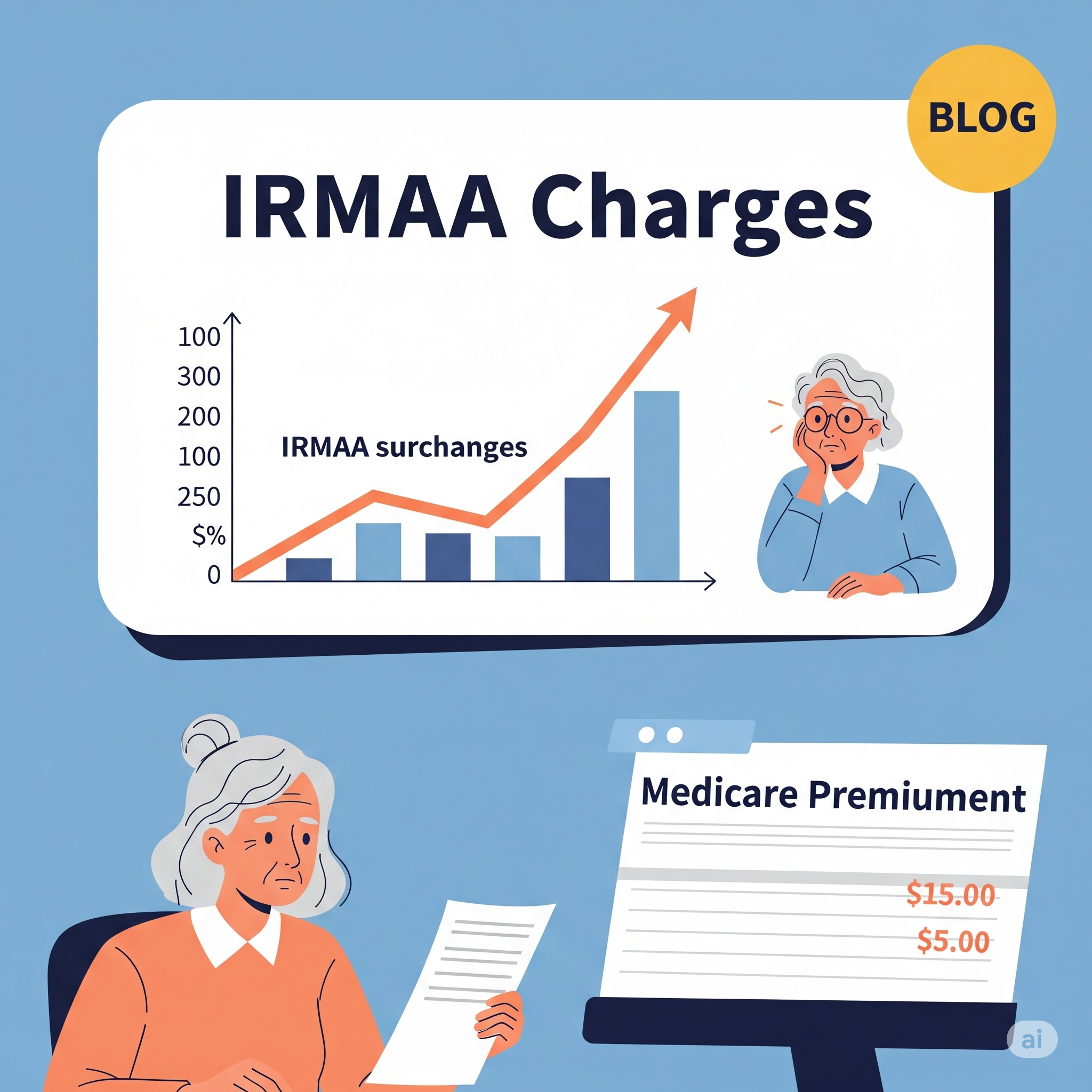IRMAA (pronounced ER-ma), or Income-Related Monthly Adjustment Amount, is an additional charge on your Medicare Part B and Part D premiums based on your income. Make no mistake—this is an extra tax, and it should be factored into your overall tax planning strategy. In this blog, we’ll cover how IRMAA is calculated, what you need to know, and strategies to minimize its impact.
Will IRMAA Affect Me?
To determine if IRMAA will apply to you, start by looking at your Modified Adjusted Gross Income (MAGI)—which includes your adjusted gross income plus certain deductions like foreign income exclusion and tax-exempt interest.
If your MAGI exceeds the IRMAA threshold, your Medicare Part B and Part D premiums will increase. But here’s the tricky part: the adjustment isn’t immediate. Instead, it’s based on your income two years prior. For example, if your income in 2025 exceeds the threshold, your 2027 Medicare premiums will reflect the IRMAA adjustment. Similarly, your 2027 income will determine your 2029 premiums.
You can find the current IRMAA income brackets here. Since your income changes over time, so will your MAGI, which means your IRMAA exposure may fluctuate as well.
How Can I Avoid IRMAA?
The simple answer? Reduce your MAGI! There are several ways to do this, but proactive tax planning is key to making an impact before it’s too late.
1. Charitable Giving Strategies
If you’re charitably inclined, donations can be a great way to lower your taxable income and potentially avoid IRMAA penalties. However, not all charitable contributions reduce MAGI. For example, cash donations that are deducted as itemized deductions will not lower MAGI.
Better Strategy – Qualified Charitable Distributions (QCDs):
- If you’re 73 or older and subject to Required Minimum Distributions (RMDs), a QCD allows you to donate directly from your IRA to a charity.
- The donated amount does not count toward your MAGI and satisfies your RMD.
- Example: If your RMD is $15,000 and you donate $5,000 as a QCD, only $10,000 will be counted toward your MAGI—helping you stay below the IRMAA threshold. Learn more about QCDs here.
2. Donating Appreciated Securities
While donating stocks or securities won’t directly reduce your MAGI, it can help minimize capital gains taxes. Since capital gains are included in MAGI calculations, donating highly appreciated assets instead of selling them can help manage your taxable income.
3. Making Pre-Tax Retirement Contributions
If you’re still working, contributing to a pre-tax retirement account can help lower your MAGI and potentially keep you under the IRMAA threshold. There’s no longer an age limit for IRA contributions, so this strategy can still apply even if you’re past RMD age.
Examples of eligible accounts (assuming you have earned income):
- Traditional IRA
- 401(k), 403(b), or 457(b)
- Solo 401(k)
- SIMPLE or SEP IRA
Even small contributions could make the difference between staying below or exceeding an IRMAA threshold.
Proactive Planning for Tax-Efficient Retirement
A tax-efficient retirement strategy falls into a few key areas:
1. Tax-Efficient Withdrawals
Managing how and when you withdraw funds from different accounts can help reduce taxes and IRMAA exposure.
- Step 1: Have a Systematic Withdrawal Plan – Know which accounts to pull from and when. This helps you maximize after-tax income, manage annual tax liability, and avoid IRMAA penalties.
- Step 2: Use Evidence-Based Strategies – Popular strategies include the 4% Rule, Floor and Ceiling Approach, or Total Return Investing. The key is having a research-backed strategy that aligns with your financial needs.
- Step 3: Stay Committed, but Flexible – Tax laws and markets will change. Your strategy should be adaptable while keeping you disciplined over time.
2. Roth Conversions & Long-Term Planning
Retirees often experience lower taxable income in the years after they stop working but before they start taking RMDs. These “gap years” present a great opportunity to convert pre-tax assets into Roth IRAs at lower tax rates.
- Benefits of Roth Conversions:
- Reduces future RMDs, keeping MAGI lower in later years.
- Lowers the likelihood of hitting IRMAA brackets.
- Helps lock in today’s tax rates before they potentially increase.
Converting pre-tax funds to Roth at the right time can result in significant long-term tax savings and prevent future IRMAA penalties.
Life-Changing Events & IRMAA Appeals
If you experience a life-changing event, you may be able to request an IRMAA adjustment. The Social Security Administration (SSA) allows you to appeal by calling 800-772-1213 or submitting Form SSA-44.
The six qualifying life-changing events are:
- Marriage, divorce, or annulment
- Death of a spouse
- Work stoppage or significant reduction in work hours
- Loss of income-producing property (due to circumstances beyond your control)
- Loss or reduction of pension income
- Employer settlement payments due to bankruptcy, closure, or reorganization
Final Thoughts
IRMAA penalties can add up over time, but with proactive tax planning, you can reduce or even avoid them. Whether through charitable giving, strategic withdrawals, Roth conversions, or pre-tax contributions, incorporating these strategies into your retirement plan can help keep more of your money in your pocket.
Need help optimizing your retirement tax strategy? Let’s talk!

